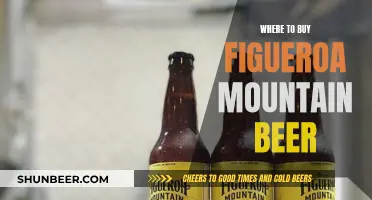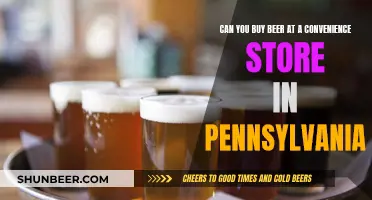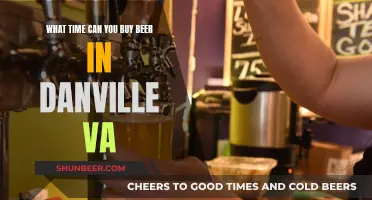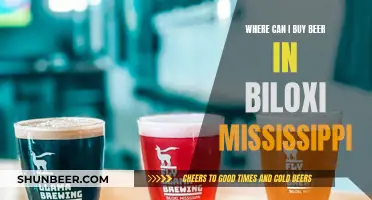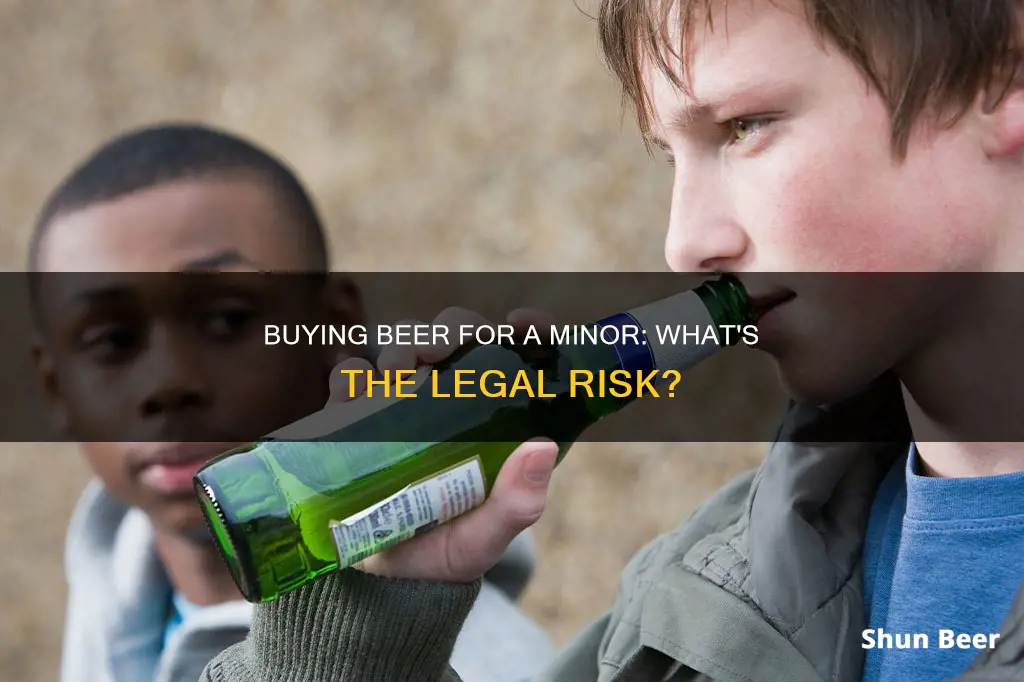
In the United States, the legal drinking age is 21 years old. There are some exceptions in certain states where parents, guardians, or spouses can offer or supply alcohol to an individual under the age of 21. However, in most states, it is illegal for anyone under the age of 21 to possess, consume, or purchase alcohol. If an adult over the age of 21 provides alcohol to a minor, they can face a fine and up to a year in jail. Minors who purchase alcohol can be charged with a crime and face legal consequences such as fines, jail time, and community service.
| Characteristics | Values |
|---|---|
| Legal drinking age in the US | 21 years old |
| Criminal offense? | Yes |
| Penalties for minors | Criminal charges, jail sentences, fines, diversion programs, community service |
| Penalties for providers | Fines, jail time, license revocations, suspensions, revocation of alcohol licenses |
| Exceptions | Religious purposes, medical purposes, private clubs or establishments, lawful employment |
What You'll Learn

Legal consequences for minors caught with alcohol
In the United States, the legal drinking age is 21 years old. While there are some exceptions in certain states that allow underage individuals to use or procure alcohol, the laws against supplying alcohol to minors are generally strict.
The consequences for minors caught with alcohol can vary depending on the state, the circumstances, and any prior criminal history. Here are some possible scenarios:
Possession
If a minor is found in possession of alcohol, they may face fines, be required to complete an alcohol awareness program, and potentially perform community service. The fines for subsequent offenses can be higher. In Kansas, a minor may be issued a citation for possession of alcohol on private property.
Consumption
Minors caught consuming alcohol can be charged with a violation, resulting in fines, mandatory alcohol-awareness programs, and community service. In Kansas, a minor convicted of operating a vehicle under the influence of alcohol can be fined $500 to $1,000 and sentenced to up to 10 days in a juvenile detention center, in addition to an alcohol program.
Purchasing Alcohol
If a minor attempts to purchase alcohol, they may face fines and be required to complete an alcohol awareness program and community service. In Texas, minors who attempt to purchase alcohol face a Class C misdemeanor.
Driving Under the Influence (DUI)
For minors caught driving with a blood alcohol level between .02% and .07%, there are typically strict penalties. In New York, for example, this can result in a six-month suspension of their driver's license, a $125 civil penalty, and a $100 fee for suspension termination. Minors who drive with higher blood alcohol levels may face jail time.
Using Fake IDs
Using a fake ID to purchase alcohol is a serious offense. In Kansas, reproducing, manufacturing, selling, or offering to sell any false identification document is a felony. A minor may be charged for possessing a fake ID that is not their own, and the person who lent the ID can also be guilty of a crime.
It is important to note that the consequences for minors caught with alcohol can extend beyond legal penalties. They may face disciplinary action from their school or university, and it may impact their future educational and career opportunities.
Texas Beer Buying on Memorial Day: What's Open?
You may want to see also

Consequences for those who supply alcohol to minors
In the United States, the legal drinking age is 21 years old. While some states allow parents, guardians, or spouses to supply alcohol to minors in certain circumstances, it is generally a crime to sell or supply alcohol to an individual under the age of 21. The laws prohibiting the sale or supply of alcohol to minors apply to everyone, including businesses and individuals, regardless of whether they are licensed to sell alcohol or not.
The term "minor" in liquor laws typically refers to anyone under the age of 21, as this is the legal drinking age in the United States. However, the term "minor" can sometimes refer to anyone under the age of 18 in other contexts.
The penalties for selling or supplying alcohol to a minor vary depending on the state and the specific circumstances. Most states punish the sale or supply of alcohol to minors as a misdemeanour, which can result in a jail sentence of a few days to one year and/or a fine of up to $5,000, although fines of $500 to $1,000 are more common. However, in some jurisdictions, supplying alcohol to a minor may be considered a felony, particularly if the minor is seriously injured or killed as a result of the alcohol consumption or if the person supplying the alcohol has been convicted of repeated offences. Felony convictions can result in prison sentences of at least one year and fines that can exceed $50,000.
In addition to criminal penalties, businesses that sell alcohol and are found to have supplied alcohol to minors may face administrative actions, such as additional fines, suspension of their liquor license, or revocation of their license.
It is important to note that the laws and penalties regarding the sale and supply of alcohol to minors can vary from state to state in the United States, and individuals should refer to their specific state laws for more detailed information.
Buying Beer in Statesboro: What You Need to Know
You may want to see also

Exceptions to the law
In the United States, the legal drinking age is 21. It is a crime to sell or supply alcohol to a minor, and state laws outline various penalties for doing so. However, there are some exceptions to these laws, which are detailed below:
Parental Exception
In some states, an exception is made for parents or legal guardians who provide alcohol to their minor children. This exception typically applies when the parent or guardian is present in a home environment. However, these parents may still face charges under the Social Host Law or Endangering the Welfare of a Child.
Religious Ceremonies
Alcohol used in religious ceremonies is generally exempt from the restrictions on providing alcohol to minors.
Medicinal Purposes
Alcohol provided for medicinal purposes is also exempt from the laws prohibiting the supply of alcohol to minors.
Minors in the Company of Adult Parents, Guardians, or Spouse
In some states, minors are allowed to possess liquor when in the company of their adult parents, guardians, or spouse.
Education Programs
Minors are permitted to consume alcohol as part of an education program where drinking is part of the curriculum, such as culinary school.
Buying Beer During Emergencies: Is It Allowed?
You may want to see also

Penalties for minor-in-possession violations
The penalties for minor-in-possession (MIP) violations can vary depending on the state and the specific circumstances of the case. However, here is some general information about the penalties that may be imposed for MIP violations.
Minors who are found to be in possession of alcohol may be charged with criminal offenses, and if convicted, they may face jail sentences, fines, diversion programs, and community service. Diversion programs typically involve supervised counselling, and successful participation in such programs can result in dropped charges. In some cases, minors may also be required to complete alcohol education programs or counselling.
The penalties for MIP violations can differ depending on the age of the minor. For minors under the age of 18, their cases will typically be handled in juvenile court, while adults aged 18 to 20 will have their cases heard in adult court. In juvenile court, a judge may order the revocation of the minor's driver's license, payment of fines and restitution, enrollment in alcohol education programs, and attendance at counselling sessions. The judge may also issue orders pertaining to the minor's parent or guardian, such as family counselling. In adult court, judges can impose jail time, but this is usually unlikely unless the offender was highly intoxicated, damaged property, drove under the influence, or has a history of prior offenses.
In addition to criminal penalties, minors caught with alcohol may also face disciplinary action from their school or university, which could include suspension or expulsion. This may have a significant impact on their educational opportunities in the future.
It is important to note that the penalties described above may vary depending on the specific state and the circumstances of the case. The approach of local police, prosecutors, and judges can also play a significant role in determining the outcome of MIP cases. Therefore, it is advisable for individuals facing MIP charges to consult with a local lawyer who is familiar with how such cases are typically handled in their area.
Kansas Beer Laws: Labor Day Shopping
You may want to see also

Penalties for providers
The penalties for providing alcohol to a minor vary depending on the jurisdiction and the circumstances of the offence. In the United States, the legal drinking age is 21 years old, and it is a crime to supply an underage person with alcohol. There are a few exceptions, such as when a parent, guardian, or spouse provides alcohol to a minor, or in certain educational contexts. However, these exceptions are rare and do not apply to most situations.
In most states, even allowing a minor to be in a home where alcohol is accessible and not preventing their access to it is considered supplying alcohol to a minor. This means that adults do not have to physically give alcohol to a minor to be charged with this offence. The laws apply to everyone, regardless of whether they are licensed to sell alcohol or not.
The penalties for supplying alcohol to minors can range from misdemeanours to felonies, depending on the jurisdiction and the circumstances. Misdemeanour charges can result in jail sentences of a few days to one year and fines of $500 to $1,000, but these can be significantly higher depending on the situation. Felony convictions, on the other hand, carry prison sentences of at least one year and fines that can run into the tens of thousands of dollars.
Individuals convicted of supplying alcohol to minors will likely be placed on probation and may have to perform community service. Businesses that hold liquor licenses may face additional fines, license suspension, or even license revocation. Business owners and employees who are convicted can be subject to both administrative and personal actions.
In the United Kingdom, it is illegal for someone under the age of 18 to buy or attempt to buy alcohol, and for an adult to buy or attempt to buy alcohol for them. If caught, the adult may be prosecuted and fined, and their license to sell alcohol (if applicable) may be at risk. A penalty notice for disorder (PND) can be issued as an alternative to prosecution, with a current penalty charge of £90.
Colorado's Full-Strength Beer Laws: What's Allowed?
You may want to see also
Frequently asked questions
The legal drinking age in the US is 21 years old.
Buying alcohol for a minor is illegal and is punishable by law. The punishment varies depending on the state and the circumstances. In some states, the adult may face a $1000 fine and up to a year in jail.
If a minor is caught with alcohol, they could be charged with an infraction. They may have to participate in an education or substance abuse program and pay associated costs. Depending on the severity of the offense and any prior criminal history, other consequences may also apply.
Minors who attempt to buy alcohol may be fined and be required to complete an alcohol awareness program and possibly community service.


